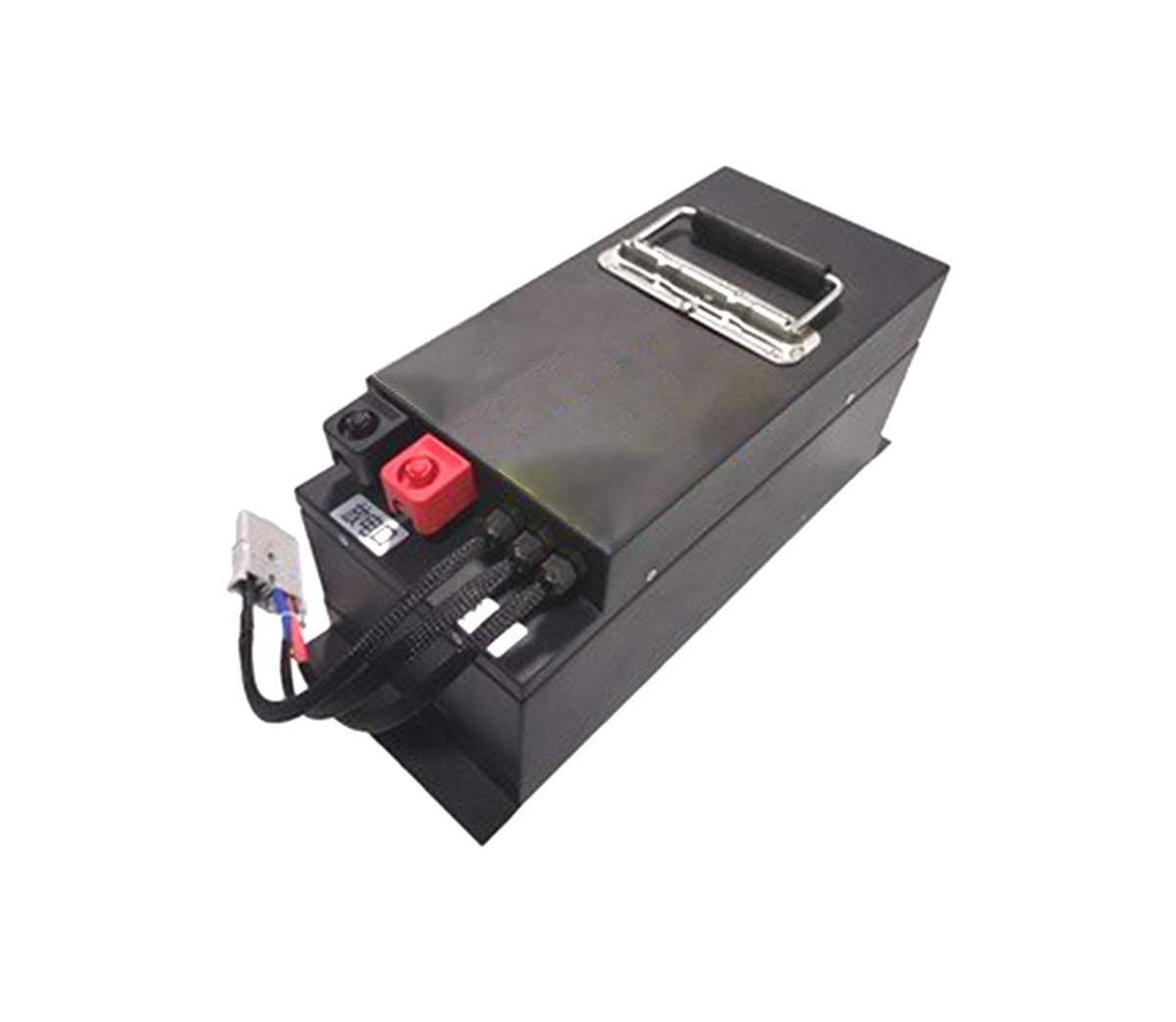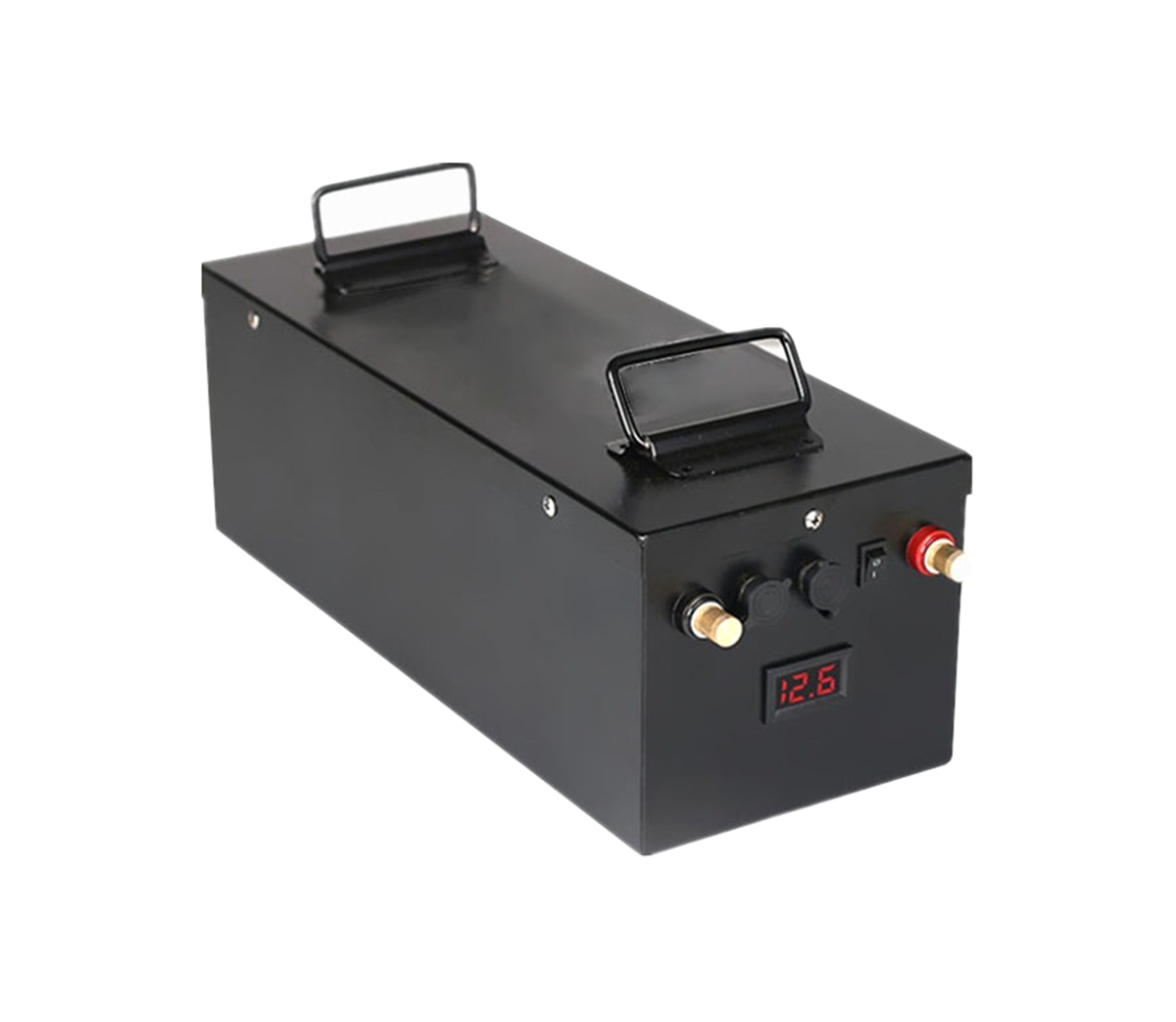For electric vehicles, the power battery is undoubtedly the key core. The performance and cost of power batteries have an important impact on the entire vehicle. Having a battery that is both cheap and can bring long battery life has always been the goal pursued by many battery companies and car companies.
Recently, an American energy storage company called Next Energy (ONE) has launched an anode-free lithium-ion battery unit with extremely high energy density. very high energy density.
The company claims that its in-house developed 240 Ah prismatic anode battery has a specific energy density of 1007Wh/L, possibly the highest energy density prismatic battery ever. Although the company did not disclose how much the unit energy density will eventually be mounted on the power battery, this theoretical parameter does seem to be very good.
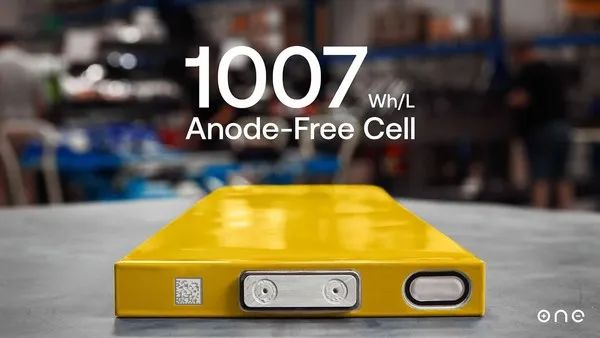
(Ultra-high energy density battery)
High energy density is not the only advantage of this anode-free battery. It is also expected to be half the price of conventional batteries because there is no need for graphite anodes and anode manufacturing equipment. The company estimates that when mass-produced, the new battery could cost as little as $50 per kilowatt-hour, meaning even a high-capacity battery with 100kWh would cost as little as $5,000.
Mujeeb Ijaz, founder and CEO of Next Energy (ONE), said: "The production of our prismatic anode-free cells uses 50% of the current conventional cell manufacturing equipment, which allows us to significantly reduce the cost of scaling up. "
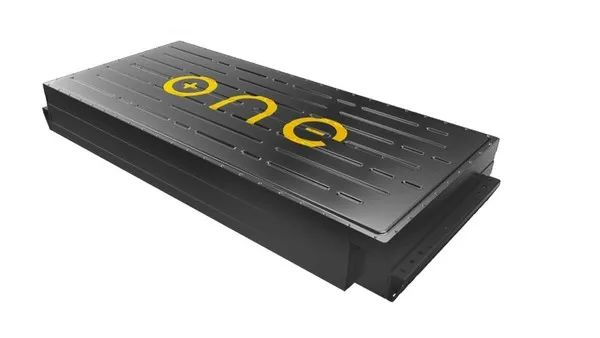
(High Energy Density Battery Pack)
The disadvantage of anode-free battery is lower cycle life compared with traditional lithium-ion battery, which limits its use prospects in the field of power batteries. But the company has introduced a dual-chemistry battery architecture called "Gemini," which consists of a lithium iron phosphate battery and an anode-free battery.
The anode-free cells in the Gemini battery pack store up to 450 miles of range and act as an energy reserve to recharge the LFP battery when needed. Earlier this year, Next Energy installed a Gemini battery pack for a Tesla Model S, then drove it 752 miles in the middle of winter in Michigan.
A proprietary DC-DC converter allows the LFP battery to provide most of the energy an electric vehicle needs for normal day-to-day driving, while the anode-free battery acts as a range extender.
Ijaz tells us that the LFP battery covers 99% of the vehicle's duty cycle, while the range extender is used for 1%. (This depends in part on how regularly the individual car owner drives the car.)
You may also notice that while anode-free cells are expected to cost around $50 per kWh to manufacture, they make up a relatively small percentage of Gemini battery packs. Manufacturing the LFP cells that make up the bulk of the battery pack accounts for the vast majority of the cost.
One of Ijaz's goals is to eliminate the use of expensive battery materials, such as cobalt, that must be sourced from foreign suppliers, and to develop a local supply chain. The company said Gemini reduced graphite and nickel by 75 percent and eliminated cobalt entirely, providing a prerequisite for a safer supply chain.
Anodeless batteries use more manganese than usual, but manganese is inexpensive and widely available. Some other battery companies are also using more manganese in their LFP batteries. Tesla is expected to start selling Model 3 sedans in China soon with LFMP batteries supplied by CATL.
In daily short-distance traffic, the vehicle is powered by lithium iron phosphate batteries, while the anode-free battery will increase the overall energy density of the system and provide stable power output when long-distance travel (up to 724 kilometers of range) is required.
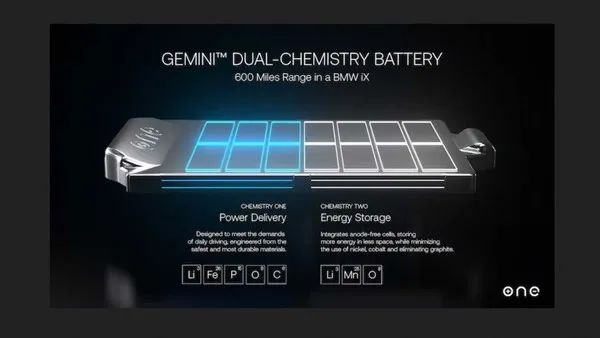
("Gemini" dual chemistry battery architecture)
The company's strategy could theoretically reduce cycle life and peak power requirements by 90 percent, enough to commercialize anode-free batteries in electric vehicles. It is estimated that the life expectancy of the entire battery system can reach 400,000 kilometers, which is also far ahead of the current power battery.
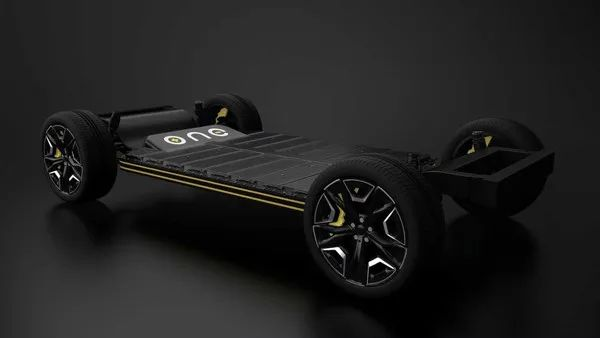
(Power battery car chassis)
The company may be a battery startup, but Ijaz is an industry veteran with 30 years of experience. As some industry reports, he was a senior executive at Apple and worked at A123 Systems, where he led the development of EV battery systems. He began to focus on developing an advanced long-range battery that used safer materials without sacrificing energy.
Earlier this year, the company had received $65 million in financing from BMW, and the company's battery pack is also scheduled to be installed on the test car of the BMW iX pure electric SUV this year, with a goal of achieving a cruising range of 600 miles (965 kilometers).
The company has begun construction of a 20 GWh battery manufacturing plant, with production expected to begin in 2026. Steven Kaye, CTO of ONE, said: "The expansion of a 2 Ah pouch cell to a 240 Ah prismatic cell in less than 12 months is a testament to the simplicity of design and the ability to use traditional lithium-ion production equipment. Gemini Mass production will be achieved in 2026, and it will accelerate the development of electric vehicles through application in various vehicles including trucks and SUVs."
SES Power is very much looking forward to the success of Gemini, because from a theoretical point of view, it is indeed subversive. Of course, if it can solve the problem of longevity, the battery energy storage system market will be another development space for it, which is not smaller than the power battery market. As a professional lithium battery energy storage system integrator with nearly 20 years of experience, SES Power's products have high technical content and extremely high cost performance.
We use high-quality lithium iron phosphate square aluminum shell cells to make excellent products, such as lead-acid replacement products with Bluetooth or RS485 communication function (lithium iron phosphate battery 12V100Ah, 12V200Ah, 24V100Ah), high current (2000A) start-up lithium battery , UPS high-voltage lithium battery system (up to 860V), 3Kw~20Kw off-grid, grid-connected, island-type lithium battery energy storage system, wall-mounted home energy storage system 48V100Ah, 48V200Ah, stacked energy storage system (single is 51.2V100Ah , supports up to 15 stacks) and so on.
If you have any interest or questions about our products, you are welcome to contact us.













